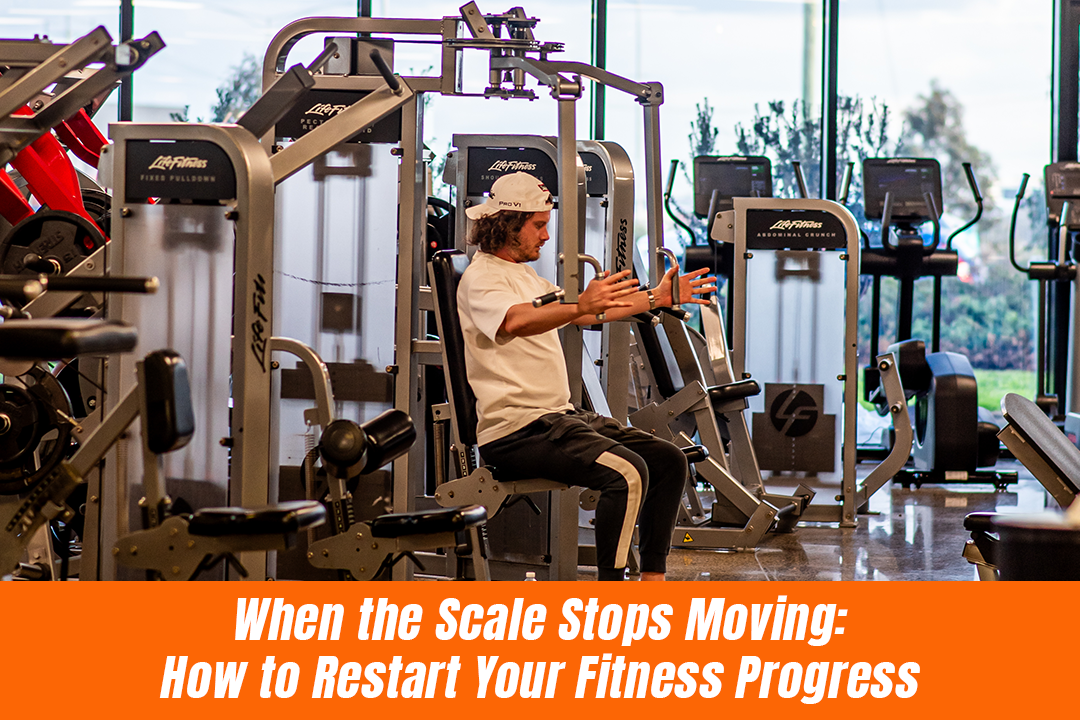
Plateauing is quite likely the most frustrating point of any exercise regimen. You've been exercising, keeping diet in check, and the scale just simply refuses to budge. Don't get upset — it's just fitness, and with the right mind-set, you can reboot your progress and back on track again to your goal.
At Kahma 24/7 Gym Truganina, we have helped some members overcome such plateaus through science-based techniques combined with changes in daily lifestyles. Below is how you can get yourself back on track.
Admitting that you no longer sense any improvement is the first step towards overcoming. The most common reasons for plateaus is one or more of the following:
Adaptation- Your body is becoming accustomed to your existing exercise regime, burning fewer calories with the same amount of effort.
Caloric Intake- Even when there is weight loss, if your caloric intake has gone up, even slightly, it's probably counteracting the caloric deficit needed for weight reduction, and under-consumption can ruin metabolism.
Stress and Rest- Excessive stress and poor rest increases cortisol, so you will store fat and become catabolic to muscle.
Plateauing Routine- The same identical workout week after week, or month after month, will plateau muscle and overall fitness gains.
Because now you know why, you can use the correct solution, instead of your making some random changes that will fail.
Muscles enjoy being pushed. Doing the same workout every day, body gets accustomed and hits the plateau. To reactivate growth and burn calories once again:
Increase Intensity – Increase weight, increase reps, or increase sets to push muscles once again.
Change Exercises – Utilize free weights, or include compound exercises like squats and deadlifts.
Add Interval Training – High-Intensity Interval Training (HIIT) will increase the after-burn of calories once your workout is finished.
Mixing it up keeps muscles on their toes in another way, and this can shatter the adaptation effect.
Nutrition is a humongous determiner for whether or not the scale moves. Plateaus are most likely to occur because your body's requirements have shifted, particularly after weight loss.
Track Your Intake – Seven-day monitoring of meals reveals hidden calories or nutritional gaps.
Focus on Protein – Great protein fuels muscle growth, repair, and fullness.
Portion Up – Gradual calorie reduction or carbohydrate cycling will spark weight loss without deprivation.
Small, smart modifications bring more long-term results than rigid dieting.
Recovery is where your body actually changes. Diet and exercise will only do so much without rest.
Sleep 7–9 Hours – Quality sleep regulates hunger and muscle repair hormones.
Stress Reduction Techniques – Yoga, meditation, or basic breathing exercises can lower cortisol, which makes fat loss easier.
Avoid Overtraining – Resting days are needed. Muscles need to have time to recover so that they will grow stronger.
A rested, relaxed body will also be more responsive to diet and exercise and will help you overcome plateaus.
Maybe the plateau is a mental one instead of a physical one! Your mind will need to be challenged in a new way to get you motivated.
Short-Term Goals – Instead of fretting about your weight, try to accomplish such feats as gaining weight or running farther, or increasing reps.
Non-Scale Victories – Look out for rises in energy, endurance, or flexibility when tracking non-scale victories.
Celebrate Small Victories – Reward effort and persistence, not scale readings.
Having a specific, measurable goal will be a greater incentive and allow you to overcome plateaus more successfully.
Specific, measurable goals can sustain high motivation and allow a more efficient attack on plateaus.
A professional trainer or a fitness coach can provide you with a new perspective. At Kahma 24/7 Gym Truganina:
Sometimes, in an attempt to get moving again, a little adjustment by someone who knows what they are doing is all it takes.
Plateaus are normal — they indicate your body had adapted, and you need to adapt. You can break through the plateau and help yourself become even better, by adapting, training, your diet, your recovery and your goal setting.
Also remember, that fitness is not always the number on the scale, it's getting stronger, healthier and happier in your own body. With some good planning and some sweat, the scale will start changing again - and your overall fitness will be better than ever before.